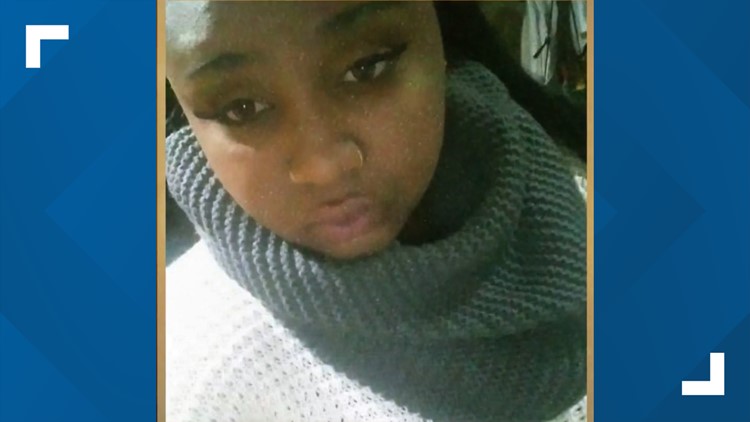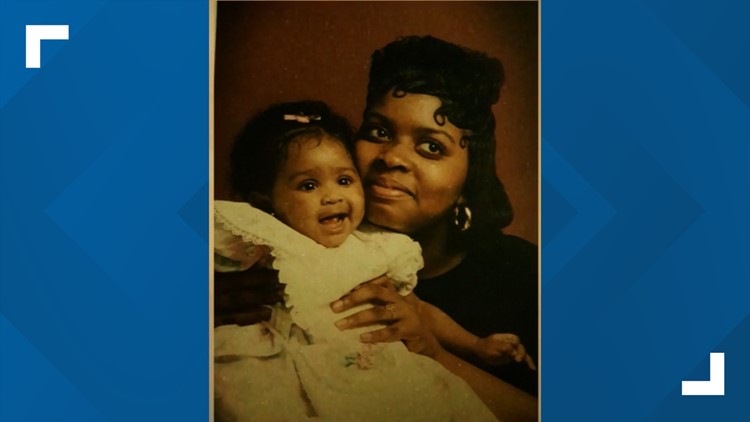ATLANTA — Antroinette Worsham was at her desk at work. It was a Tuesday.
"I definitely didn't think my baby was dead," she said.
"She had showered because she had still had on her towel. She still had on her towel and she was lying face down... ," Antroinette recalled. "And my son rolled her, he rolled her over and he said, 'Her eyes were rolled behind her head.' And she had her insulin, she had an insulin pen in her bed. It was empty..."
At the age of 16, Antavia Worsham was diagnosed with Type 1 Diabetes.
Antroinette said the diagnosis really turned her life around at the age of 16.
"All of a sudden, I now have to watch what I eat. I have to count my carbs. You know, I have to inject myself with, with insulin," she recalled of her daughter. "I have to prick my finger to check my sugar."
A state program covered the cost – until Antavia aged out of the program.
"They paid for all of her diabetes supplies, her care, everything up until the age of 21," Antroinette explained.
One year later, Antavia passed away at 22.
Photos | Antavia Worsham
According to National MS Society Executive Vice President Bari Talente, Antavia's story is one that's too common.
"Bob in Minnesota and Diane in Wisconsin, and so many countless others, they can't afford or they don't want to have the responsibility of financially bankrupting their family without more than $6,000 out-of-pocket cost a year," Talente said.
"They're skipping doses, they're prolonging refills, all of those things to try and stretch it out more," Talente added. "But any time that you're skipping a dose or prolonging those refills means that you're not getting the full efficacy of the medication, and you're putting yourself at risk. And it's heartbreaking that people are in that position."
More than 13 million Americans are not adhering to their medication as prescribed due to cost, according to the Robert Wood Johnson Foundation.
One out of 20 adults say a loved one died, unable to afford medical treatment, according to a report from West Health and Gallup. They had to choose between quality of life or death.
"We have people that are cutting back on the amount of food that they purchase. They're trimming any of the basic necessities that they can do without because they can't afford their prescription," Atlanta Cancer Foundation Social Worker Bryan Miller said.
Pharmaceutical companies started increasing the price of medications in 1997.
In the 1920s, when Banting and Best isolated insulin, they sold that patent to the University of Toronto for $1. It was to help make diabetes an affordable disease for anyone to manage, explained Endocrinologist Dr. Darwin Brown said.
Now, there are three insulin manufacturers in the United States – Eli Lilly, Sanofi-Aventis and Novo Nordisk – who Brown says has the entire market.
"Now, we have a situation where Eli Lilly releases Humalog in 1998 for $21 a vial and it's now $300 a vial several years later," Brown said.
While Eli Lilly and others offer prescription assistance programs, high costs are still forcing some patients to ration. Patients like Antavia.
"(Antavia) went to the pharmacy and she was like, 'Mama. They want $500 for my insulin.'" And I was like, '$500? What?'" Antroinette recalled. "I didn't know how important it was for her to really have that insulin to live. I miss my baby so much. Goodness gracious, I try not to get emotional as I miss her so much."
Antroinette has another daughter with Type 1 Diabetes. Antonia is 21 years old and in college. Antroinette said if this issue doesn't change, she's fearful about the consequences Antonia could face.
"She's getting older, and we want her to live a very long, healthy life and make sure that she has the insulin that she needs to stay alive," she said.
Antroinette said the pandemic showed that there are funds out there.
"Make health care universal like other countries," she urged.
After Antavia's death, Antroinette helped to get a law changed in Ohio under the state's Children with Medical Handicaps program, which allows kids to extend their government coverage annually after the age of 21 until 26 years old.
"I absolutely know that I have to support," she said. "I have to support her, because insulin is expensive and is not changing. It's going up, right, like everything else. And people are dying every day because they can't afford health care."













